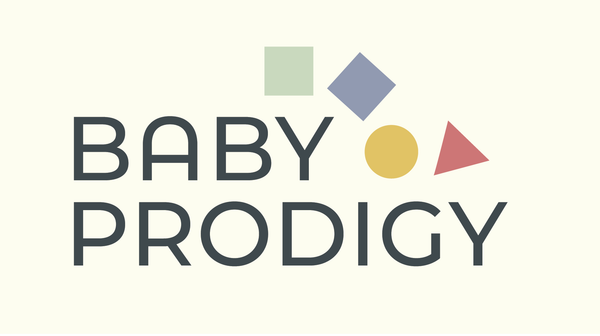Montessori toys have been a cornerstone of early childhood education for over a century. Rooted in the philosophy of Dr. Maria Montessori, these toys were designed to encourage self-directed learning, hands-on exploration, and cognitive development. Over time, the evolution of Montessori toys has reflected changes in both educational philosophy and manufacturing methods, all while staying true to the foundational principles of Montessori education.
From simple wooden blocks to modern, intricate educational tools, the evolution of Montessori toys is a fascinating journey. As the world changes, so do the materials, designs, and philosophies that shape the toys children use to learn and grow.
The Origins of Montessori Toys
Montessori toys first emerged alongside the Montessori method itself, developed by Dr. Maria Montessori in the early 20th century. Dr. Montessori emphasized learning through play, encouraging children to engage with educational tools that fostered independence, creativity, and problem-solving skills.
The early Montessori toys were simple, often made from natural materials such as wood, metal, or fabric. These toys were designed to be open-ended, allowing children to use them in a variety of ways to explore and learn.
Early Montessori Toy Features:
-
Simple and functional designs
-
Emphasis on natural materials
-
Open-ended play that encourages imagination
The Shift to Wooden Montessori Toys
In the mid-20th century, wooden toys began to dominate the Montessori landscape. This shift was driven by a growing emphasis on sustainability, simplicity, and the tactile benefits of wooden materials. Wooden Montessori toys also offered durability and a connection to the natural world, which aligns with Montessori's focus on nurturing a child's relationship with nature.
Today, wooden toys remain a staple in Montessori classrooms and homes worldwide. They offer a hands-on learning experience that fosters fine motor skills, coordination, and sensory exploration.
The Rise of Educational Montessori Toys
As Montessori's influence grew, the demand for more specialized educational toys grew as well. Manufacturers began to create toys that were not only fun but also designed with specific educational goals in mind. These toys incorporated elements of the Montessori method, such as sensory exploration, problem-solving, and self-correction.
Educational Montessori toys today come in various forms, from puzzles and stacking toys to early STEM kits. The evolution of these toys reflects an ever-developing understanding of child development and learning.
The Integration of Technology and Montessori Toys
With the rise of technology in the 21st century, Montessori toys began to evolve further. While traditional wooden toys remain a staple, many companies now integrate technology into their designs, offering digital tools that encourage learning. These modern Montessori toys are designed to enhance a child's learning experience without taking away from the core principles of Montessori's philosophy.
Examples include interactive learning boards, apps that promote educational play, and even robotic kits that introduce children to coding and technology. The integration of technology has provided new opportunities to combine Montessori's focus on hands-on learning with digital engagement.
Sustainability and Modern Montessori Toys
Today’s Montessori toys are more sustainable than ever. With growing concerns over plastic pollution and environmental impact, many manufacturers now focus on creating eco-friendly toys made from recycled materials, sustainable wood, or non-toxic paints. This focus on sustainability not only benefits the environment but also provides children with safe, non-toxic materials that align with the Montessori emphasis on natural elements.
Many companies are also committed to ethical sourcing and production, ensuring that every toy is made with care for both the child and the planet.
The Future of Montessori Toys
Looking ahead, the future of Montessori toys seems bright. With a continued focus on sustainability, innovation, and child-centered design, Montessori toys will continue to evolve to meet the needs of the next generation. As the world changes, so too will the ways we support children’s growth through play.
As educational research deepens and technology advances, Montessori toys will likely continue to evolve in ways that balance tradition with modern needs. These future toys may include further integration of STEM principles, augmented reality experiences, and even more advanced sensory tools to support all areas of development.
Inline Example: The Montessori Carrot Toy
An excellent example of the evolution of Montessori toys is the Montessori Carrot Toy, designed to promote fine motor skills and hand-eye coordination. This toy encourages children to "harvest" the carrots from the garden using a little wooden spade, mimicking real-life tasks. The carrot toy illustrates how Montessori toys can stay true to the original principles while offering innovative learning opportunities.
Conclusion
The evolution of Montessori toys is a testament to the lasting impact of Dr. Maria Montessori's educational philosophy. From simple wooden blocks to high-tech interactive learning tools, Montessori toys continue to support children's growth and development in meaningful ways. As educational approaches evolve, Montessori toys will continue to foster creativity, independence, and a love for learning in children around the world.
Key Takeaways
-
Montessori toys have evolved from simple wooden tools to incorporate modern educational concepts, including STEM and interactive technology.
-
The focus on sustainability and eco-friendly materials has become an integral part of Montessori toy manufacturing.
-
Modern Montessori toys balance traditional tactile experiences with innovative tools to enhance learning while staying true to Montessori principles.
Explore BabyProdigy’s collection of educational, non-toxic, and sustainable Montessori-inspired wooden toys. Designed to spark curiosity and encourage purposeful play, our toys offer an enriching learning experience for children of all ages!

